Ditapis dengan

At the edges of states :dynamics of state formation in the Indonesian borderl…
Set in West Kalimantan, Indonesian Borneo, this study explores the shifting relationships between border communities and the state along the political border with East Malaysia. The book rests on the premises that remote border regions offer an exciting study arena that can tell us important things about how marginal citizens relate to their nation-state. The basic assumption is that central st…
- Edisi
- -
- ISBN/ISSN
- 9789067183741
- Deskripsi Fisik
- XVIII, 355 p.
- Judul Seri
- -
- No. Panggil
- 959.832 EIL e

The lands west of the lakes; A history of the Ajattappareng kingdoms of South…
The period 1200-1600 CE saw a radical transformation from simple chiefdoms to kingdoms (in archaeological terminology, complex chiefdoms) across lowland South Sulawesi, a region that lay outside the ‘classical’ Indicized parts of Southeast Asia. The rise of these kingdoms was stimulated and economically supported by trade in prestige goods with other parts of island Southeast Asia, yet the …
- Edisi
- -
- ISBN/ISSN
- 9789067183314
- Deskripsi Fisik
- xvi, 377 p.
- Judul Seri
- -
- No. Panggil
- 909 DRU l
Indonesia in a reforming world economy:effects on agriculture, trade and the …
In the mid-1990s a joint research project was established between CASER (Bogor), CIES (Adelaide), CSIS ( Jakarta) and RSPAS (at ANU, Canberra) to examine interactions between agriculture, trade and the environment in Indonesia. Funded by the Australian Centre for International Agricultural Research (ACIAR Project No. 9449), the specific objective of the project was to assess the production, con…
- Edisi
- -
- ISBN/ISSN
- 9780980623871
- Deskripsi Fisik
- xvi, 265p.: ill.
- Judul Seri
- -
- No. Panggil
- 338.109598 AND
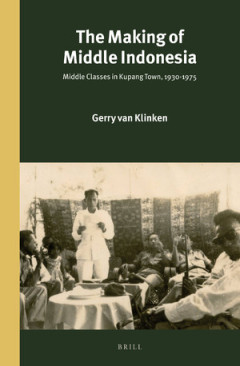
The making of middle Indonesia
What holds Indonesia together? In The Making of Middle Indonesia, Gerry van Klinken develops an innovative historical explanation that looks beyond national elites to middle classes in provincial towns.
- Edisi
- -
- ISBN/ISSN
- 9789004265424
- Deskripsi Fisik
- xvii, 300p.: ill.
- Judul Seri
- -
- No. Panggil
- 305.550959868 VAN t

Chairil Anwar:the poet and his language
- Edisi
- -
- ISBN/ISSN
- 9789004286931
- Deskripsi Fisik
- xxviii, 159p.
- Judul Seri
- -
- No. Panggil
- 899.2211 OEM c
- Edisi
- -
- ISBN/ISSN
- 9789004286931
- Deskripsi Fisik
- xxviii, 159p.
- Judul Seri
- -
- No. Panggil
- 899.2211 OEM c

Environmental dispute resolution in Indonesia
In the last two decades, Indonesia has seen a dramatic proliferation of environmental disputes in a variety of sectors, triggered by intensified deforestation and large scale mining operations in the resource rich outer islands, together with rapid industrialisation in the densely populated inner island of Java. Whilst the emergence of environmental disputes has sometimes attracted political re…
- Edisi
- -
- ISBN/ISSN
- 9789067183260
- Deskripsi Fisik
- xvii, 334p.
- Judul Seri
- -
- No. Panggil
- 344.598046 NIC e
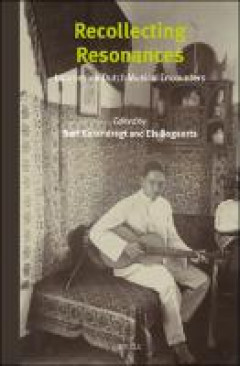
Recollecting resonance:Indonesian-Dutch musical encounters
Over time Dutch and Indonesian musicians have inspired each other and they continue to do so. Recollecting Resonances offers a way of studying these musical encounters and a mutual heritage one today still can listen to. Readership: All those willing to learn more about the impact and consequences of musical encounters between Dutch and Indonesian performers in both a colonial and postcolonial …
- Edisi
- -
- ISBN/ISSN
- 9789004258594
- Deskripsi Fisik
- xi, 353p.: ill.
- Judul Seri
- -
- No. Panggil
- 780.959809492 REC c
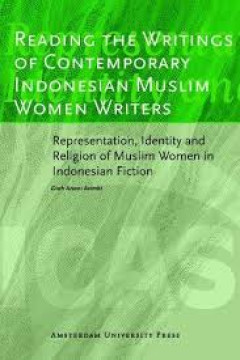
Reading contemporary Indonesian Muslim women writers representation, identit…
- Edisi
- -
- ISBN/ISSN
- 9789089640895
- Deskripsi Fisik
- -
- Judul Seri
- -
- No. Panggil
- 899.22300809287 ARi r
- Edisi
- -
- ISBN/ISSN
- 9789089640895
- Deskripsi Fisik
- -
- Judul Seri
- -
- No. Panggil
- 899.22300809287 ARi r
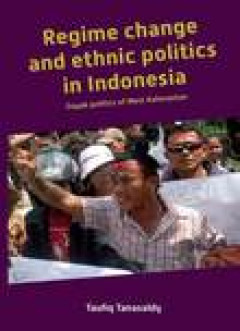
Regime change and ethnic politics in Indonesia; Dayak politics of West Kalima…
When the Indonesian New Order regime fell in 1998, regional politics with strong ethnic content emerged across the country. In West Kalimantan the predominant feature was particularly that of the Dayaks. This surge, however, was not unprecedented. After centuries of occupying a subordinate place in the political and social hierarchy under the nominal rule of the Malay sultanates, Dayaks became …
- Edisi
- -
- ISBN/ISSN
- -
- Deskripsi Fisik
- xiv, 461 p.; 22 cm.
- Judul Seri
- -
- No. Panggil
- 959.8 TAN r
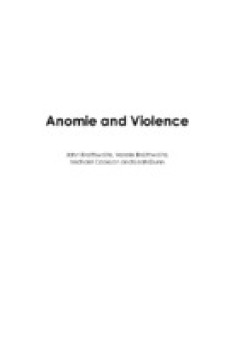
Anomie and violence :non-truth and reconciliation in Indonesian peacebuilding
Indonesia suffered an explosion of religious violence, ethnic violence, separatist violence, terrorism, and violence by criminal gangs, the security forces and militias in the late 1990s and early 2000s. By 2002 Indonesia had the worst terrorism problem of any nation. All these forms of violence have now fallen dramatically. How was this accomplished? What drove the rise and the fall of violenc…
- Edisi
- -
- ISBN/ISSN
- 9781921666230
- Deskripsi Fisik
- XV, 501 p.
- Judul Seri
- -
- No. Panggil
- 320.9598 ANO a

American visions of the Netherlands East Indies/Indonesia :US foreign policy …
The authors of this book challenge the view that was current among many people in the Netherlands during the period 1945-1949 that the American government and its foreign policymakers unequivocally backed the Indonesian Republic's struggle for independence. The same myth of America's political endorsement of Indonesians' quest for independence continues to reverberate in the United States itsel…
- Edisi
- -
- ISBN/ISSN
- 9789053564790
- Deskripsi Fisik
- 382 p.
- Judul Seri
- -
- No. Panggil
- 327.73059809041 BRO a
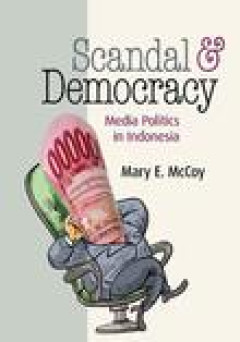
Scandal and democracy:media politics in Indonesia
After a nation has transitioned from authoritarianism to democracy, how are democratic norms most effectively fostered and maintained? This book uses as its case study Indonesia after the fall of the dictator Suharto to reveal that a contentious, even scandal-obsessed press can actually prove extremely useful for an emergent democracy. A society that can tolerate and protect journalists willing…
- Edisi
- -
- ISBN/ISSN
- 9781501731037
- Deskripsi Fisik
- xiii, 203 p.; 22 cm.
- Judul Seri
- -
- No. Panggil
- 302.2309598 MCC s

Testing the margins of leisure :case studies on China, Japan, and Indonesia
This volume offers eight studies on different historical and present-day aspects of leisure in Asia. It critically engages with the predominant Eurocentric focus of leisure studies, bringing into the discussion a number of crucial issues such as the role of leisure as a transcultural contact zone. The volume engages with a field that has been rapidly growing due to the heightened role of leisur…
- Edisi
- -
- ISBN/ISSN
- 9783947732753
- Deskripsi Fisik
- VI, 310 p.
- Judul Seri
- -
- No. Panggil
- 306 TES t

Tata kelola penanganan Covid-19 di Indonesia:kajian awal
Pandemi global COVID-19 telah melahirkan kegamangan tata kelola penanganan dihampir semua negara, terlepas dari apapun tingkat kemajuan ekonomi dan teknologi serta karakter politiknya. Sistem manajemen krisis standar kehilangan relevansi, memaksa pemerintah mengambil kebijakan yang cenderung trial and error. Indonesia menghadapi tantangan serupa. Situasi ini diperparah dengan adanya politisasi …
- Edisi
- -
- ISBN/ISSN
- 9786023868797
- Deskripsi Fisik
- xxii, 372p. : ill.
- Judul Seri
- -
- No. Panggil
- 616.2414 TAT t
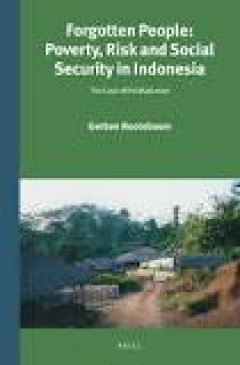
Forgotten people:poverty, risk and social security in Indonesia
In Forgotten People Gerben Nooteboom describes and analyses the livelihoods and social security of peasants and migrant Madurese. It offers a new way to categorise and analyse livelihood security of marginal people in Indonesia by using the concept of style.
- Edisi
- -
- ISBN/ISSN
- 9789004282988
- Deskripsi Fisik
- 324 p.; 22 cm.
- Judul Seri
- -
- No. Panggil
- 304.56 FOR f

Kerangka literasi digital Indonesia
Secara umum yang dimaksud dengan literasi digital adalah kemampuan menggunakan teknologi informasi dan komunikasi (TIK), untuk menemukan, mengevaluasi, memanfaatkan, membuat dan mengkomunikasikan konten/informasi, dengan kecakpan kognitif maupun teknikal. Ada banyak model kerangka (framework) untuk literasi digital yang dapat ditemukan di Internet, dengan ragam nama dan bentuk. Setiap model mem…
- Edisi
- -
- ISBN/ISSN
- 9786025132421
- Deskripsi Fisik
- 46p. : ill.
- Judul Seri
- -
- No. Panggil
- 303.4833 KER k
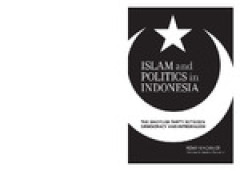
Islam and politics in Indonesia :the Masyumi Party between democracy and inte…
The Masyumi Party, which was active in Indonesia from 1945 to 1960, constitutes the boldest attempt to date at reconciling Islam and democracy. Masyumi proposed a vision of society and government which was not bound by a literalist application of Islamic doctrine but rather inspired by the values of Islam. It set out moderate policies which were tolerant towards other religious communities in I…
- Edisi
- -
- ISBN/ISSN
- 9789814722568
- Deskripsi Fisik
- -
- Judul Seri
- -
- No. Panggil
- 324.2598 MAD i
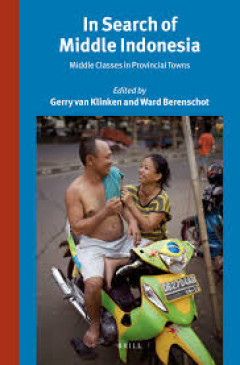
In Search of Middle Indonesia :middle classes in provincial towns
The middle classes of Indonesia’s provincial towns are not particularly rich yet nationally influential. This book examines them ethnographically. Rather than a market-friendly, liberal middle class, it finds a conservative petty bourgeoisie just out of poverty and skilled at politics. Please note that Sylvia Tidey's article (pp. 89-110) will only be available in the print edition of this book
- Edisi
- -
- ISBN/ISSN
- 9789004263437
- Deskripsi Fisik
- xiii, 239 p.; 22 cm.
- Judul Seri
- -
- No. Panggil
- 305.5’509598 INS i

The archaeology of the Aru Islands, Eastern Indonesia
This volume describes the results of the first archaeological survey and excavations carried out in the fascinating and remote Aru Islands, Eastern Indonesia between 1995 and 1997. The naturalist Alfred Russel Wallace, who stopped here in search of the Birds of Paradise on his voyage through the Indo-Malay Archipelago in the 1850s, was the first to draw attention to the group. The results revea…
- Edisi
- -
- ISBN/ISSN
- 9781921313042
- Deskripsi Fisik
- v, 314p. : ill.
- Judul Seri
- -
- No. Panggil
- 959.801 ARC a
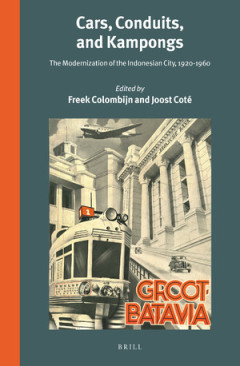
Cars, conduits and kampongs:the modernization of the Indonesiaan city, 1920-1960
Cars, Conduits and Kampongs offers a wide panorama of the modernization of Indonesian cities between 1920 and 1960. In examining the multiple responses to innovations introduced by Western colonialism, the contributors demonstrate how modernization, urbanization, and decolonization were intrinsically linked. A full text Open Access version is also available.
- Edisi
- -
- ISBN/ISSN
- 9789004280724
- Deskripsi Fisik
- xiv, 351p.: ill.
- Judul Seri
- -
- No. Panggil
- 307.760998 CAR c
 Karya Umum
Karya Umum  Filsafat
Filsafat  Agama
Agama  Ilmu-ilmu Sosial
Ilmu-ilmu Sosial  Bahasa
Bahasa  Ilmu-ilmu Murni
Ilmu-ilmu Murni  Ilmu-ilmu Terapan
Ilmu-ilmu Terapan  Kesenian, Hiburan, dan Olahraga
Kesenian, Hiburan, dan Olahraga  Kesusastraan
Kesusastraan  Geografi dan Sejarah
Geografi dan Sejarah